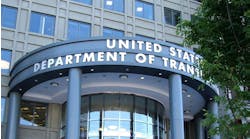Like the professional truck drivers you employ, state highway patrol officers are on the road long hours, day and night, in fair and foul weather. Out there with speeders and distracted drivers. They’re at crash sites, lending assistance. They’re out there when snowstorms and forest fires tell others to stay off the roads, because their being out on the road, no matter the conditions, means others can enjoy a better life.
State highway patrol officers answer the call every day. Perhaps, because of all we share, we in trucking can learn what steps the highway patrol takes to stay safe on the road.
One law enforcement safety organization labeled highway patrol and other police work as “totally unpredictable and inherently dangerous.” No matter what conditions officers face, they remain focused on what they can control.
That organization identified Five Tenets, part of the Below 100 Initiative that identifies items the officer can control, that lead to improved safety. Four of them speak directly to truck drivers:
- Wear your belt.
- Watch your speed.
- WIN – What’s important now?
- Remember, complacency kills.
Wear your belt: Highway patrol officers at times purposefully approach dangerous drivers to protect others on the highway from dangerous encounters. Specifically, dangerous driving can cause a crash. Try as officers and professional truck drivers may, crashes do occur. The key in both highway patrol and truck driving crashes is to survive. Truck drivers who don't use seat belts are 30 times more likely to be ejected from the vehicle during a crash and roughly 75% of those who are ejected die from the injuries. Tell your drivers to heed the patrol tenet: Wear Your Belt.
Watch your speed: When law enforcement officers get involved in vehicle crashes the leading cause is excessive speed. When highway patrol officers pulled over truck drivers for dangerous driving in 2020 and 2021, the foremost violation was excessive speed. While law enforcement may speed in emergency situations; truck drivers have a choice. Tell your drivers what the highway patrol has learned: Watch Your Speed.
WIN—What’s important now: W.I.N. is an acronym coined by former Notre Dame football coach Lou Holtz. It stands for "What’s Important Now?"
Holtz taught his players to ask themselves this question when they woke up, at all times during the day, and even on the field at a game. Holtz wanted them to focus on what mattered most at any given time.
Law enforcement must exercise extreme focus. Life or death may depend on an officer’s response. That's one reason the highway patrol prohibits officer use of personal cell phones except in “exigent circumstances”—those where a call must be made and no other option is available.
Professional truck drivers must remain focused too, because unfortunately, distracted driving is the third leading dangerous driving violation among motorists. Tell your drivers to constantly focus on What’s Important Now. It can be a life or death choice.
Remember, complacency kills: The fourth lifesaving law enforcement tenet is to abide by the first three. But it is more than that.
Studies among police officers have shown that age and experience can actually be counterproductive when they lead to the complacency of “been there, done that.” It is true that we drive safely by staying fully aware and completely present in the moment. Drivers can apply the worthy tools of age and experience, but only when they focus first.
We need to remind truck drivers—today, this moment, is the only time they can be safe. As law enforcement knows, complacency kills.
Steve Vaughn is vice president of field operations at PrePass Safety Alliance, the provider of PrePass weigh station bypass and toll-payment/management services. Vaughn served nearly three decades with the California Highway Patrol and is a past president of the Commercial Vehicle Safety Alliance.



